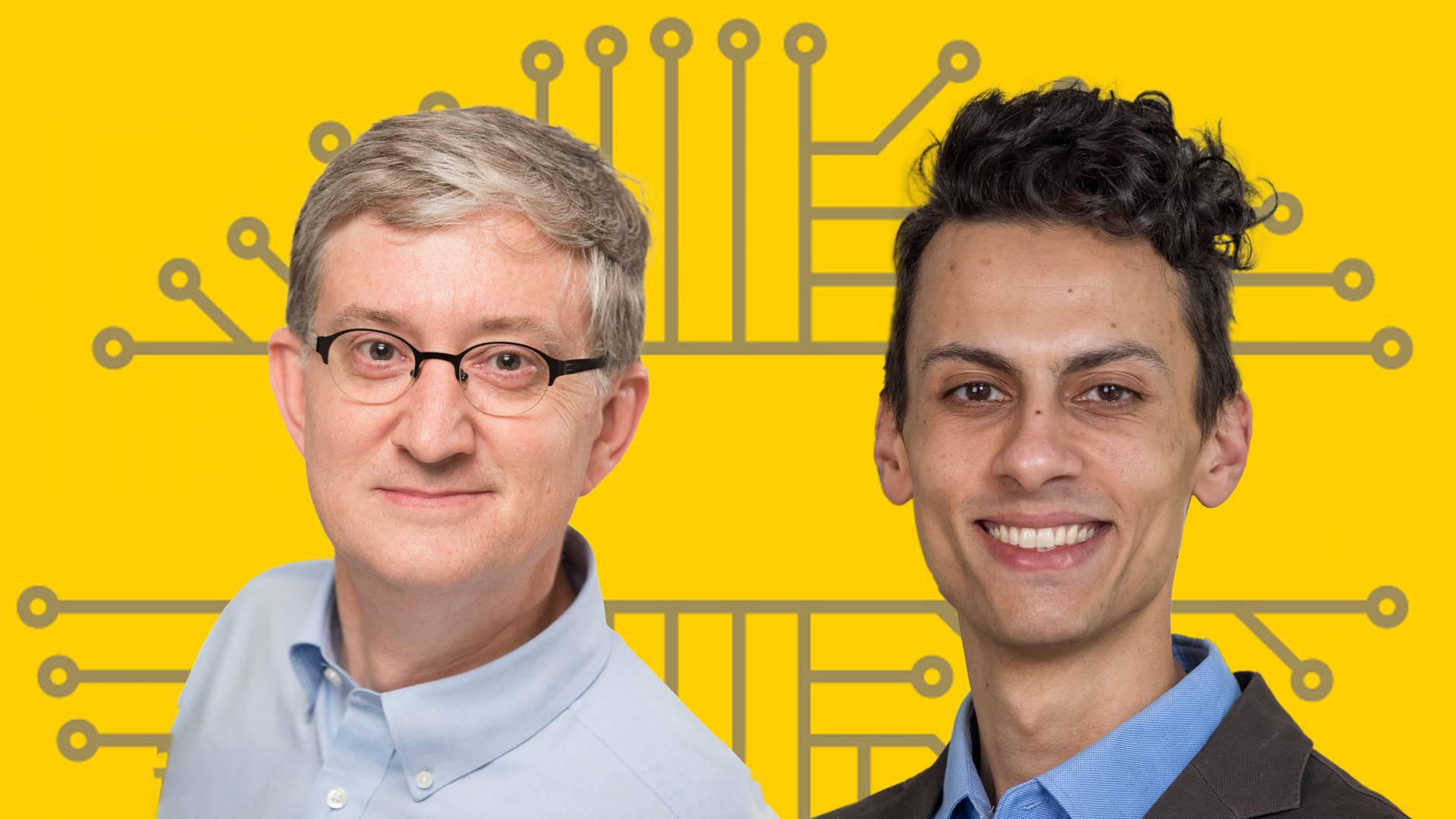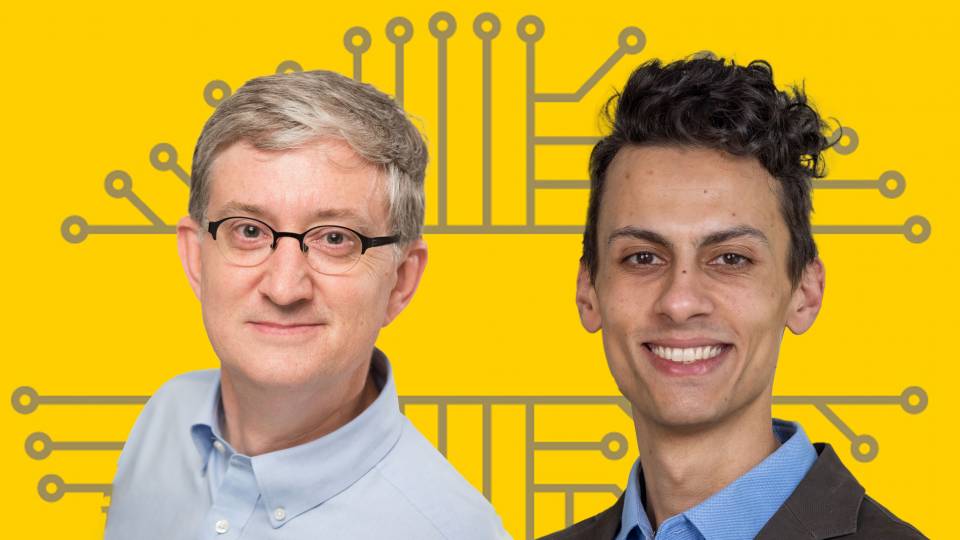Princeton’s Ed Felten and WHYY’s Malcolm Burnley.
AI is being used to combat the COVID-19 pandemic in new and innovative ways, making advancements in healthcare that can be used to curb future pandemics. But at what cost to our privacy?
In the third episode of A.I. Nation, a new podcast by Princeton University and Philadelphia public radio station WHYY, computer science professor Ed Felten and WHYY reporter Malcolm Burnley explore the ways AI has improved our response to the pandemic, particularly in the instrumental advances it has made in solving the protein folding problem.
As Felten and Burnley explain, when scientists know the shapes of harmful proteins, they are able to develop vaccines to block them. This is one reason that COVID-19 vaccines were developed so quickly: because scientists had already studied the shape of other SARS viruses, they were able to determine the COVID-19 virus’ genetic sequence within days. But what happens if the next pandemic is an entirely new type of virus that scientists haven’t conducted research on already?
Enter AI. Since 1994, scientists around the world have participated in CASP, or the Critical Assessment of Structure Prediction. The goal of the conference is to find a shortcut for determining protein shapes, which are typically identified through time-consuming experiments in a laboratory.
Andrei Lupas, a molecular biologist and 1991 Princeton graduate alumnus who directs the Max Planck Institute in Germany, has been participating in CASP for many years, and, up until recently, was discouraged by the lack of progress. But in 2018, things began to shift due to massive leaps in machine learning. At CASP in 2020, a Google company called Deep Mind used a neural network-based AI called AlphaFold 2 to accurately predict a protein’s shape in a half hour, thus solving the protein folding problem. Burnley puts it this way, “If CASP is the Oscars of the protein folding world, Deep Mind won best actor.”
If scientists had the capability to identify amino acid sequences this quickly at the start of the pandemic, its severity might have been mitigated. And yet, as Felten and Burnley point out, some countries swiftly responded to the virus using big data and AI, ultimately containing COVID-19 without having to shut down their economies.
One example is South Korea, which reported its first COVID-19 case on the same day as the U.S. Almost immediately, the South Korean government leaped into action, using contact tracing apps in smartphones to determine where people were going. This information, combined with data from credit cards and ATM use, enabled the South Korean government to see if someone had been in close proximity to a confirmed COVID-19 case and act accordingly to prevent the virus’ spread.
Felten and Burnley discuss the pros and cons of this AI-oriented approach and the reasons why it would likely be met with resistance in the U.S. today, but perhaps less so in the future.
“It's really about data collection, because in order to be able to detect a possible pandemic really early, the government needs to know what's happening… that means they have to have eyes and ears out,” says Felten. “The question of how much of that are we willing to accept in exchange for the next pandemic being noticed quicker and getting over more quickly… that’s something we have to decide.”
In episode four, Felten and Burnley will talk about biased intelligence, or AI’s role in predictive policing and the ethical questions it raises.
The podcast, which launched on April 1, has been featured as “New & Noteworthy” on Apple Podcasts and as a “Fresh Find” on Spotify. A.I. Nation is available for download wherever you get your podcasts.





